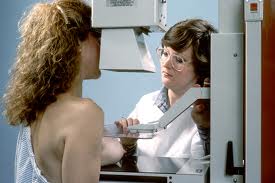This test saved my life: Rethinking the value & risks of cancer screening
ListenRecently, several expert groups have issued recommendations for less screening for prostate, breast and cervical cancer. Earlier this month, the U.S. Preventive Services Task Force, an independent panel charged with evaluating medical evidence and issuing guidelines, said that the P.S.A. screening test for prostate cancer doesn’t save lives and may lead to harm, and that women should have Pap tests for cervical cancer every three years instead of yearly. In 2009 the Task Force issued guidelines that changed the way we think about mammograms, finding no benefit of the screening test for women in their 40’s and that women from 50-74 should only have the test every two years instead of yearly. And a new study published in the Annals of Internal Medicine by two Dartmouth researchers found that the number of women helped by mammograms is much lower than we think. Why all these changes in the way we screen for cancer, and how do we weigh the benefits of screening with the medical risks associated with over-testing? Do we need to rethink the ways we think about how we treat cancer and deal with it individually and as a society? We pose these questions to three guests: Wall Street Journal health writer KATHERINE HOBSON, Fox Chase Cancer Center radiation oncologist ERIC HORWITZ and NANCY BERLINGER, a bioethicist with The Hastings Center.
Listen:
[audio: 110311_110630.mp3]
WHYY is your source for fact-based, in-depth journalism and information. As a nonprofit organization, we rely on financial support from readers like you. Please give today.






